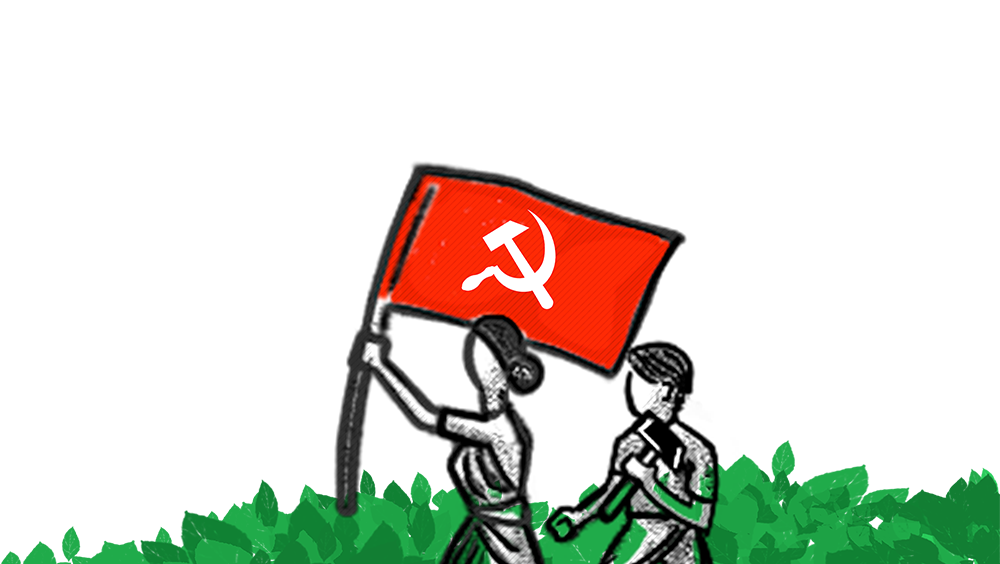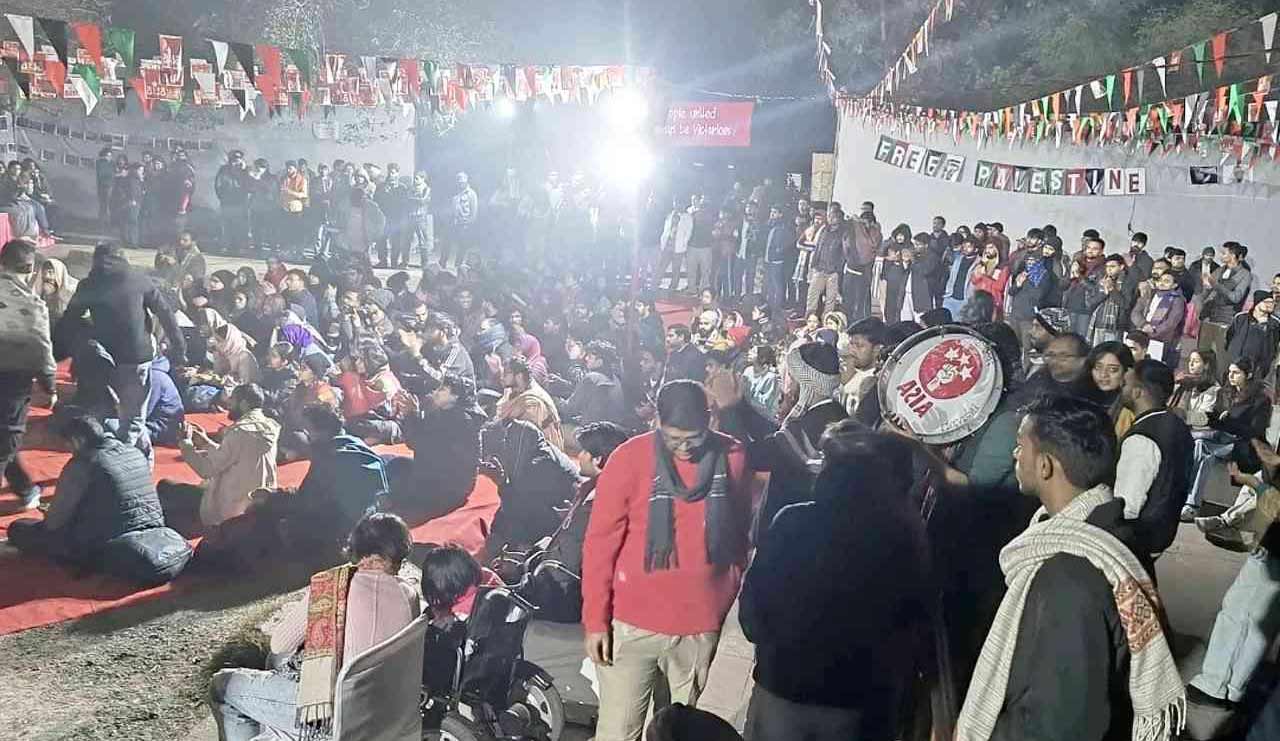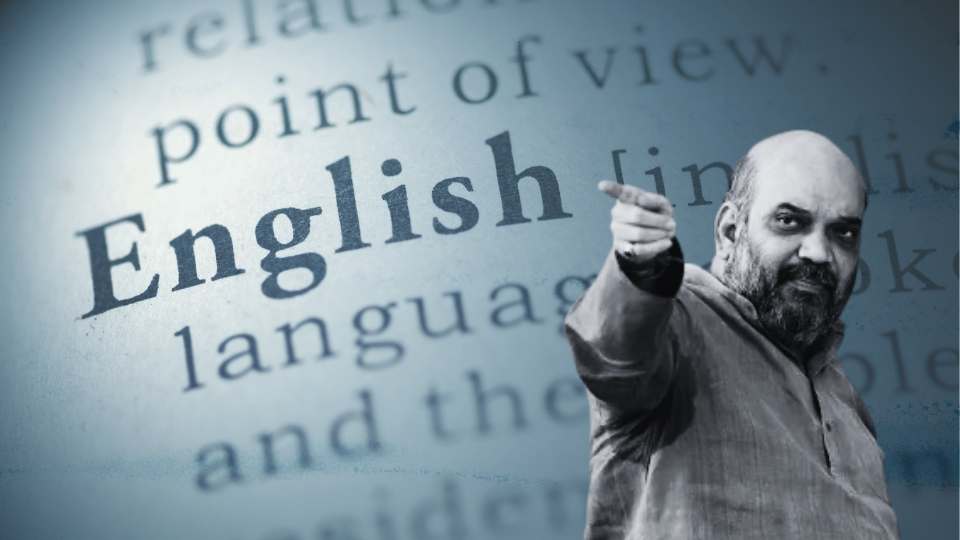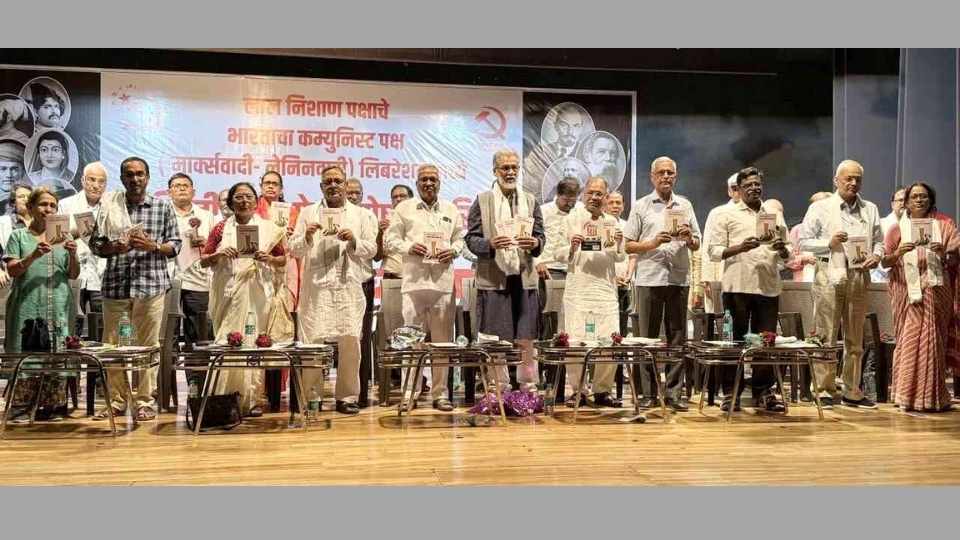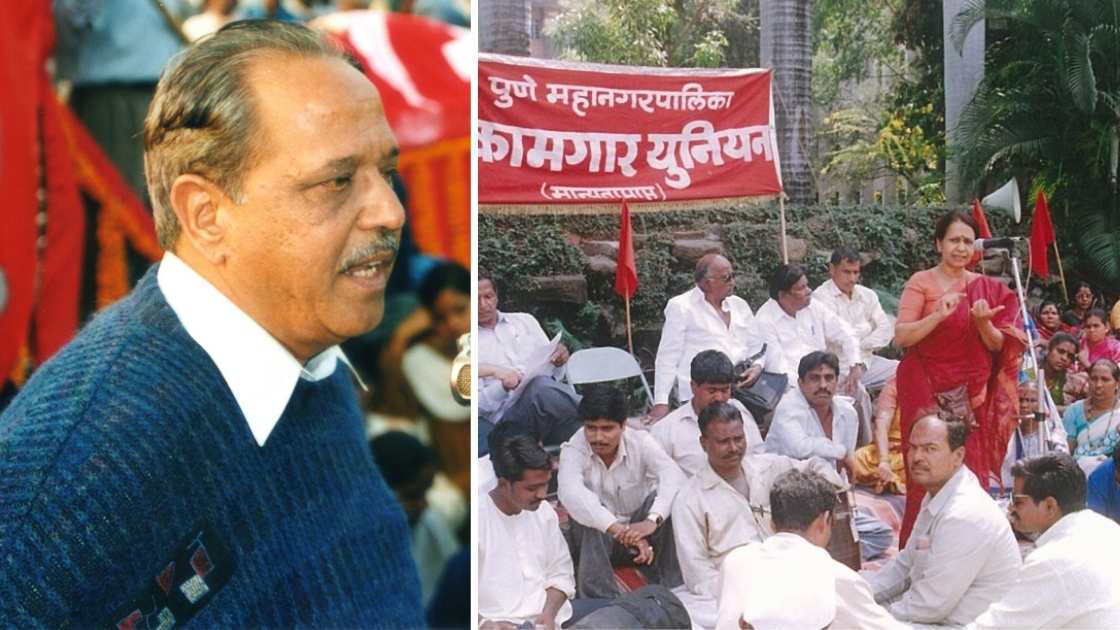The AISA JNU organized the 2nd People’s Literature Festival (January 18–19, 2025) to celebrate the art of resistance across the globe, dedicating it to the steadfast resilience of the Palestinian people amidst the ongoing genocide by the state of Israel.
The festival began with a session titled “The Ongoing Genocidal War in Palestine: The Resistance for Liberation”, featuring a distinguished panel of academicians: Achin Vanaik retired professor, Delhi University), Amir Ali (faculty member, JNU) and Soumyabrata Chowdhary (retired professor, JNU). The speakers examined the courageous struggle of Palestinians for freedom in the face of overwhelming adversity.
The second session revolved around a discussion of the book “This Too is India”, edited by the acclaimed Geeta Hariharan. Panelists Geeta Hariharan, Ayesha Kidwai (former professor, JNU), and Brahma Prakash (faculty member, JNU) delved into the themes of diversity and dissent that underpin the work. They highlighted how marginalized and minority communities in India express defiance through literature, citing examples like Gurram Joshua’s Dalit epic Gabbilam (The Bat), a poignant response to Kalidasa’s Meghadutam. In this work, the bat carries its dissent to celestial beings, offering a powerful critique of societal inequities.
The third session showcased the documentary “Zameer” by the renowned feminist author and activist Uma Chakravarti. The film chronicles the harrowing experiences of Adivasi, Dalit, and Muslim women wrongfully imprisoned as political prisoners. The fourth session featured poetry readings by seven prominent contemporary Hindi poets. The first day concluded with a cultural program featuring powerful performances by Kumar Himanshu, Yusra Naqvi, and Wafa Akbar (students of JNU). They performed revolutionary songs by Habib Jalib, Faiz Ahmed Faiz, Mehdi Hassan, and others, honouring the sacrifices and struggles of those who continue to resist oppression and injustice.
The second day of the People's Literature Festival began with the session titled “Hindi in the 21st Century and Intersectional Discourse.” Ashutosh Kumar (faculty member at Delhi University) and Ramayan Ram (Ambedkarite thinker) captivated the audience with their insights into the significance of intersectional thinking in both literature and everyday life. They delved into the intricacies of Dalit literature and Dalit feminism, emphasizing that Dalit literature is inherently a literature of resistance, deeply rooted in its movemental history. The speakers highlighted how this genre serves as a powerful voice against oppression and a testament to the struggles and aspirations of marginalized communities.
The second session was titled “Changing Contours of Indian Media: (Main) Stream and Beyond” and featured panelists Abhinandan Sekhri (co-founder of Newslaundry), Saurabh Shukla (The Red Mike), and Asmita Nandy (documentary filmmaker and journalist. The third session, titled “Devalued Labour and Dehumanised Existence: Roots of Women’s Oppression,” featured Professor Sucharita Sen (faculty member, JNU) and trade union activist and former JNUSU President and AICCTU leader Sucheta De, who critically examined the systemic invisibilization of women’s labour. Professor Sen highlighted how capitalism thrives on unpaid female labour, using data to show how women’s contributions have been erased for centuries. Comrade Sucheta De exposed the harsh realities of unorganised sector workers, including ASHA and Anganwadi workers, Jal Sahiyas, and contractual labourers, emphasizing how their indispensable contributions are dismissed by labelling them as volunteers, depriving them of basic labour rights.
The fourth session of the second day was dedicated to the protests and struggles of people both in India and around the world. The final session of the festival was an enchanting evening of Lok Geet (folk songs) performed by Comrade Raju and Comrade Mahender of Yuva Neeti from Bhojpur, accompanied by Souvik, a PhD scholar of JNU, on the tabla. Their songs, including “Ae Sajni Re, Piya Gaile Kalkatwa” by Bhikhari Thakur and “Hamni Deshwa ke Naya Rachwaiya Hain Ja” resonated with the audience, narrating the daily struggles of laborers and marginalized communities.
The 2nd People’s Literature Festival stood as a powerful testament to the resilience of art and literature in fostering resistance and solidarity.

